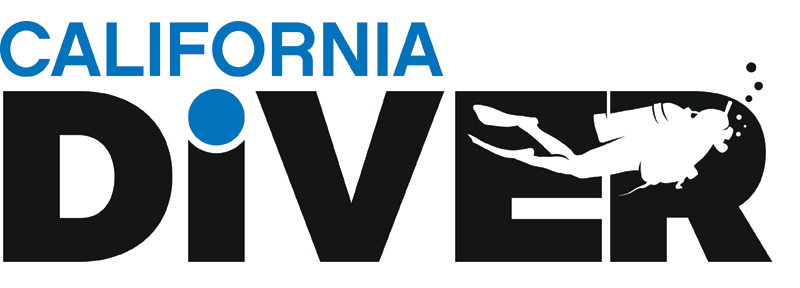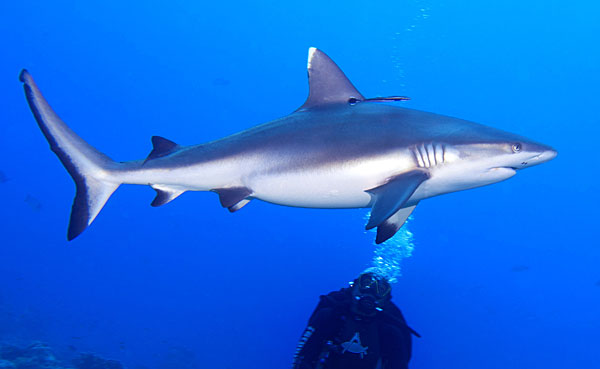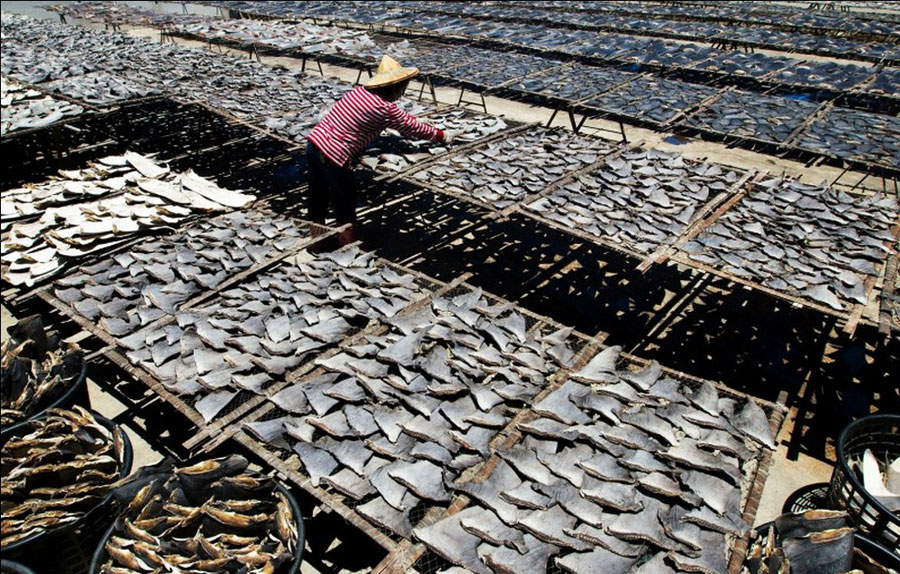The Discovery Channel’s Shark Week is a weeklong series of feature television programs dedicated to sharks. Broadcast annually since 1987, Shark Week was originally developed to raise awareness and respect for sharks. It is the longest-running cable television programming event in history, and now broadcast in over 72 countries.
 The original stated mission of Shark Week – “to dedicate awareness and respect for sharks” – seems to have changed in recent years and replaced with episodes aimed at making sharks more widely known as dangerous, bloodthirsty, vicious killers. In the same way the movie Jaws famously kept people out of the water back in 1975, Shark Week programming appears to be more dedicated to scaring people rather than to educating people on how to help and protect sharks or raise awareness in a positive way.
The original stated mission of Shark Week – “to dedicate awareness and respect for sharks” – seems to have changed in recent years and replaced with episodes aimed at making sharks more widely known as dangerous, bloodthirsty, vicious killers. In the same way the movie Jaws famously kept people out of the water back in 1975, Shark Week programming appears to be more dedicated to scaring people rather than to educating people on how to help and protect sharks or raise awareness in a positive way.
As if dramatizing the viscousness of sharks wasn’t enough, the Discovery Channel’s claim of being “The World’s #1 Nonfiction Media Company” also seems to be in direct conflict with much of their current shark week programming. In recent years, Shark Week has focused on mystery and mythical beasts, at the expense of factual shark depictions. Let’s take a look at last years’ program lineup as one example.
In 2013, Shark Week brought us Megalodon: The Monster Shark Lives, Voodoo Sharks, I Escaped Jaws, Great White Serial Killer, Alien Monster Sharks, and the Great White Gauntlet. Judging from the titles alone, none of these portray sharks in a positive light.
A look into the description of the 2013 lineup tells much more.
Megalodon: The Monster Shark Lives
With only very brief, easy-to-miss disclaimers at the beginning and ending indicating that it is fictional, Megladon revolves around the loss of a pleasure boat and crew off the coast of South Africa, and an ensuing investigation that points to an attack by a member of the species megalodon, a prehistoric shark thought to be long extinct. Its format is that of a documentary that includes accounts of “professionals” in various fields related to Megalodon.
The show specifically was criticized by both scientists and ordinary viewers due to the attempt to present fiction as a non-fiction documentary. Despite the momentary disclaimers, some people actually believed they were watching a real documentary. I personally knew several people who talked about the discovery of a megladon shark after watching the show. But it doesn’t end there…
Voodoo Sharks
For years, there have been stories along the bayous of Louisiana of a killer shark that stalks wildlife and people – but is this fresh-water killer the result of an ages-old voodoo curse, or just the wild imagination of moonshine-sipping fishermen? To see if they can get to the bottom of the Rookin legend, three colorful fishermen, led by a hefty fellow named Capt. Blimp head out to try to find a Bull Shark off the Louisiana coast.
Great White Gauntlet
Divers risk it all in Australia’s treacherous shark-infested waters to capture a valuable sea creature — a million dollar bounty, if they can survive the great white gauntlet.
Well, you get the idea. Do any of the above titles really “raise awareness and respect for sharks”? Obviously this direction has been completely abandoned and devolved into a pop-science fear fest.
2014 is here – and it’s more of the same
Just a few days ago, the lineup for Shark Week 2014 was announced. For those in search of more overdramatized, fictionalized content it’s probably something to look forward to. For those interested in learning more about the natural habitat and behavior of sharks, learning about their decline and how they can be saved, it’s not going to be pretty. Here are the titles, along with the Discovery Channel’s descriptions:
———————-
“Sharkageddon” – This program will uncover the reasons behind the mysterious shark invasion occurring in Hawaii, an island known as an idyllic vacation destination.
“Lair of the Mega Shark” – Follows famous shark experts as they head to New Zealand on a “life-or-death mission to investigate the sightings of a 20-foot Great White.” The large shark allegedly resembles the legend of a giant great white called the “lord of the sharks.”
“Zombie Sharks” – For all you undead-loving fans, this program will explore “tonic immobility that can be achieved in sharks.” Tonic immobility is a “catatonic zombie-like state” that sharks undergo, particularly when turned over, and apparently orca whales have figured out how to induce it in the ocean’s greatest predator — hence the recent spike in orca attacks on great whites.
Professional driver Eli Martinez will look into this phenomenon by attempting to be the “first person to induce underwater tonic immobility in a massive great white shark.”
“Alien Shark: Return to the Abyss” – Shark researcher Paul Clerkin heads to the Indian Ocean in this Shark Week program to plumb the depths in hopes of finding a shark species that scientists never even knew existed. He hopes to get a peek at the last known group of bioluminescent sharks in the world.
“Monster Hammerhead” – This program will trail the legendary hammerhead that’s been swimming along the Florida shoreline for the past 60 years.
“Spawn of Jaws 2: The Birth” – Dr. Michael Domeier will attempt to solve “one of the greatest mysteries of shark science”: the birthing grounds of great whites. He hopes to tag a pregnant female shark to learn where she gives birth to her puppies. And you thought Sex Ed was only for high school students.
“Great White Matrix” – Legendary shark attack survivor Paul de Gelder and cameraman Andy Casagrande will go on an expedition to the deadly, shark-infested waters of Australia. Their mission is to “investigate a series of bizarre shark attacks” in the area, which is swarming with great white sharks.
“Air Jaws: Quest for Colossus” – Jeff Kurr and his team hope to track down the missing “mega-shark” known as Colossus.
“Jaws Strikes Back” – Marine biologist Greg Skomal and his team will travel to the remote Pacific island of Guadalupe to watch the largest great white sharks on earth hunt down two-ton mega seals.
“I Escaped Jaws 2” – If you love shark-survivor stories, then this is for you. This special feature tells stories from the perspective of survivors, featuring first-person interviews and actual footage of the attacks. You’ll get to see how the survivors narrowly escaped the jaws of death.
“Shark of Darkness: Submarine Returns” – This program will explore the legend of a submarine-sized great white that is supposedly terrorizing the coast of South Africa. Locals are convinced this 30-foot shark is responsible for countless attacks, but its existence has never been proven… until now.
“Megalodon: The New Evidence” – Finally, someMegalodon news! This feature will present new evidence and interview footage that proves this rumored animal exists. What else could have attacked a fishing vessel off the coast of South Africa and killed all on board in April 2013?
———————-
To be fair, some of these could potentially be interesting and informative, such as exploring “tonic immobility that can be achieved in sharks in Zombie Sharks”. Exploring the Great White Matrix may be interesting as well, depending on how it ends of being presented. But once again presenting new evidence and footage that proves the Megladon shark exists? Really?
But ok, it’s just entertainment, right?
Sure. And their ratings prove that people love the shows. When the dust settled, Discovery Channel’s Shark Week 2013 emerged as the most watched in the franchise’s 26-year history. An average of 2.12 million people watched Shark Week in primetime, and nearly 29 million unique viewers sampled the orgy of shark-dom. Their faux-documentary Megalodon: The Monster Shark Lives finished the week as the most-watched program in the franchise’s history, with an average of nearly 5 million tuning in.
A far greater responsibility
The truth is, sharks really need our help. A recent report published in the journal Marine Policy revealed that an estimated 100 million sharks are killed by humans every year, and added that the number of sharks killed could actually be anywhere between 63 million and 273 million. Compare that to the fact that each year there are about 50 to 70 confirmed shark attacks, with just 5 to 15 shark-attack fatalities around the world.
“This is a big concern because the loss of sharks can affect the wider ecosystem,” said Mike Heithaus, executive director of FIU’s School of Environment, Arts and Society and co-author of the paper. “In working with tiger sharks, we’ve seen that if we don’t have enough of these predators around, it causes cascading changes in the ecosystem, that trickle all the way down to marine plants.”
Because of the role sharks play in the sustainability of marine ecosystems, researchers insist that protective measures must be scaled up significantly to avoid further depletion and possible extinction of some of the world’s top predators.
A huge part of this protection CAN come from an increased awareness of sharks and gaining people’s respect for the role they play in our oceans. Unfortunately, this August, millions of people around the world are going to see a different message – that sharks are dangerous killers that we should all be afraid of.
– Chris Constantine


